8 creative alternatives to the video game life bar
Check the meter
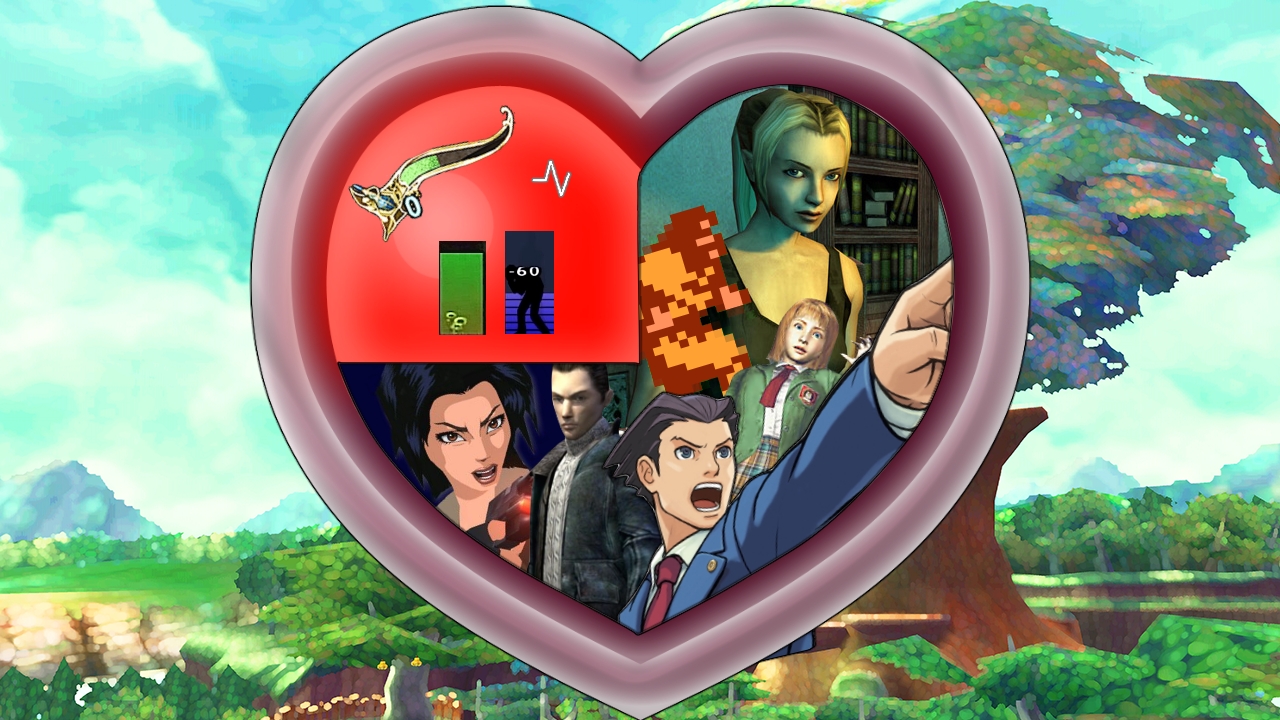
For as long as there have been video games there have been systems in place to ensure that those video games do not continue on unabated. After all, what good is a truly endless experience, an interaction without incentive? Once the initial novelty wears off, what then? Without the likes of the humble health bar to affirm our actions, to measure our gaming greatness, we'd all be utterly bored by now.
Health bars - hidden or otherwise, are as vital to gaming as the lifeblood in Zelda's HUD hearts are to Link. They come in many forms, measuring our proximity to defeat in everything from blood to - well, everything listed here. Yes, you see as games have evolved, so have our means of measuring our ability - or not - to play them well. New stories, worlds, tasks and design ideas have forced the noble health bar out of its comfort zone and demanded that it adapt, to measure all kinds of different successes and failures in a plethora of new contexts. All pretty much hit you with restart hammer when depleted, but it's not the destination that matters, it's the journey. Thusly, today's big list of things looks at just some of the many, highly intriguing alternatives to the classic life bar. Whatever you do, don't let 'em hit zero.
Fear Meter (Fear Effect)
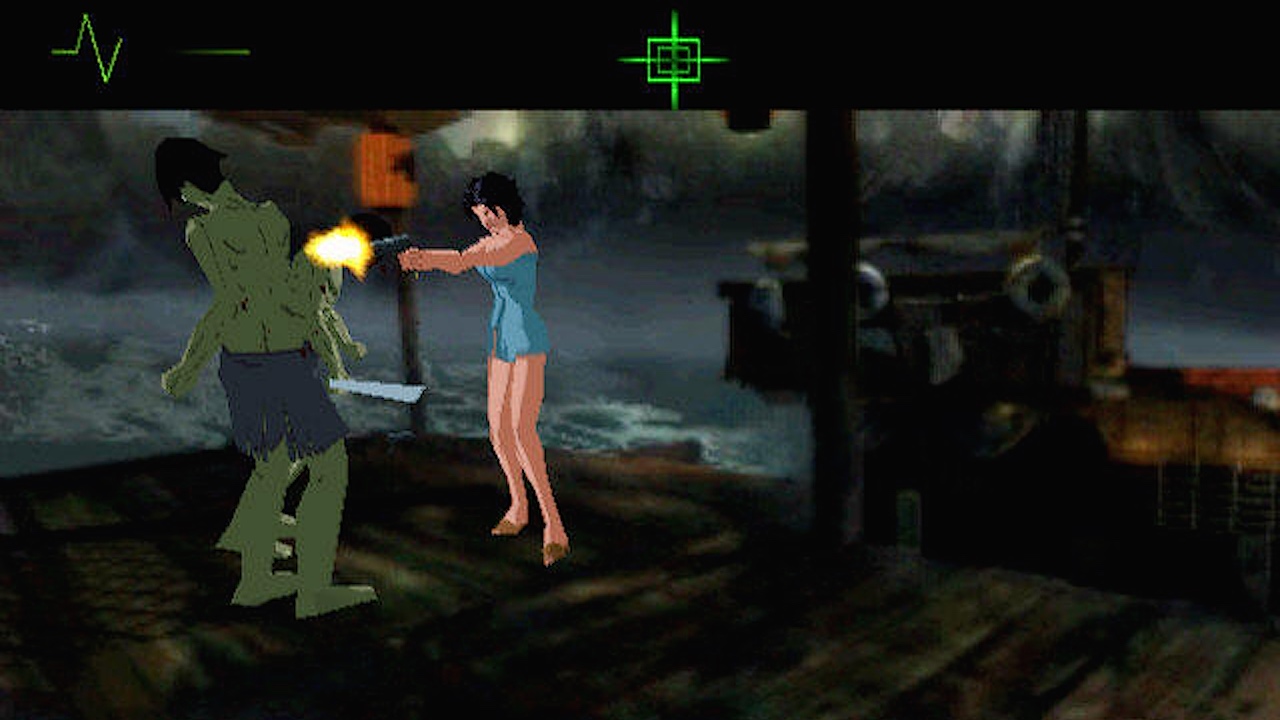
They say that 'the heart wants what the heart wants', and what the heart wants most of all is not to implode out of sheer bloody terror. An EKG, or electrocardiogram device, measures the rate at which that most vital of vital organs operates. It's also rather useful for telling medical professionals when to start beating on your chest like an angry ape. Fear Effect uses the machine's iconic pulsing symbol in lieu of a regular health bar, with enemy attacks serving only to increase its rapidity. Green is good, blipping along at a steady rate, whilst red and yellow represent a state of declining health.
Players can enhance their chances of survival by 'calming down' the protagonist - either by way of stealthy play or through the completion of in-game puzzles. Failure to do so will effectively cause your avatar to suffer a massive and fatal heart attack. We're not exactly sure where science stands on the whole 'death by fright' debate, but it's a fair bet that the game's lithe leading lady hasn't been wolfing down any deep fried mars bars lately, so it can't be her cholesterol to blame
Sanity Meter (Eternal Darkness: Sanity's Requiem)
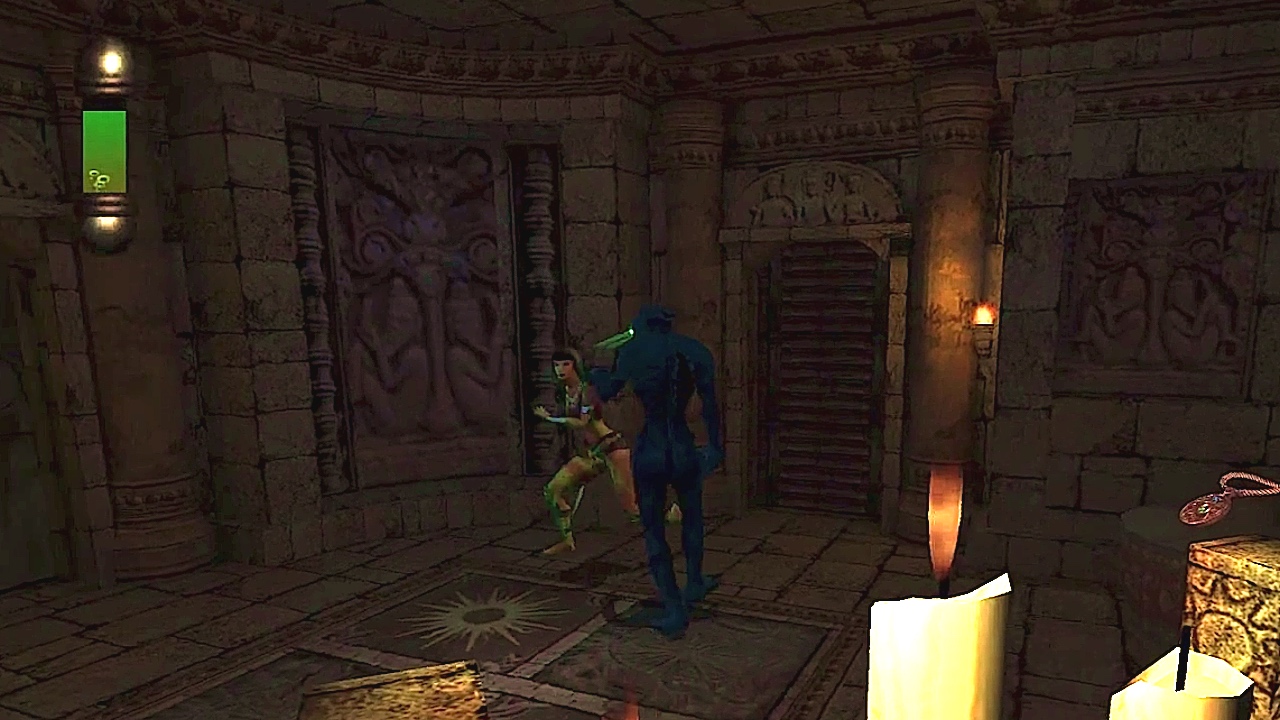
If only every individual came complete with a sanity meter. It'd certainly make relationships a whole hell of a lot simpler. Knowing your ditzy misfits from your grade-A nutters is an evermore-essential skill. With access to the heady world of online dating, the average person's exposure to amorous lunatics has increased exponentially. This sort of thing should be a default widget on everyone's profile.
Video game sanity meters have been around for quite a while now, though few are held in such high regard as that which appears in Silicon Knight's Eternal Darkness. The concept proved to be so darn popular in fact that Ninty even opted to copyright it, presumably so that they could accurately gauge lost Metroid fans' continuing levels of despair. Unlike many of the entries on this list, ED's meter isnt an outright replacement for the health gauge, though failure to top up your 'mental mana' will cause all sorts of freaky disturbances to appear, eventually leading to your death. Contributing factors include being spotted by an enemy, or witnessing a terrifying event. Thank God nobody asked the protagonists to play Too Human then
Panic Meter (Clock Tower 3)
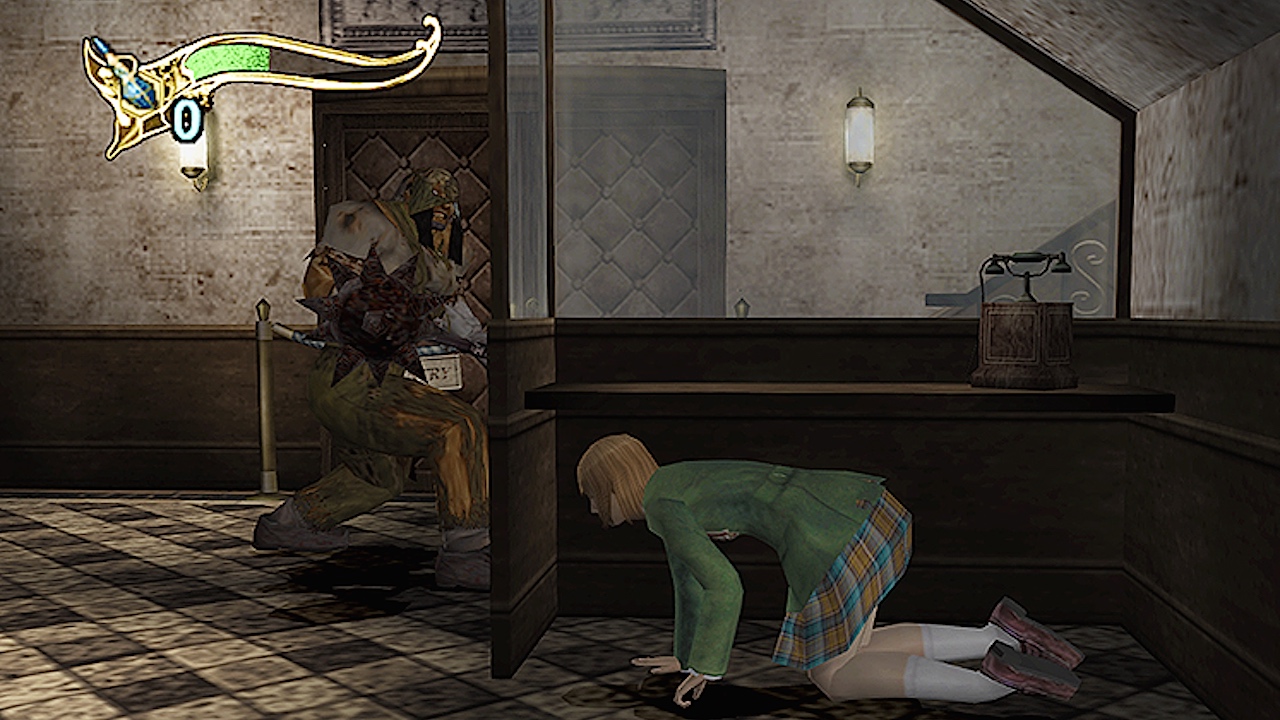
If there's one fatal flaw in the whole 'average everyday hero' trope then it's this: real people tend to be absolutely bloody awful at handling pressure. Heroes undergo great pains to achieve their ends, overcoming fear itself in the name of goodness, truth and the philanthropic spirit. Real people smash up their keyboards and scream highly specific grievances at their pets. See the difference? A hero's courage isn't for everyone. Some folks have it, most dont. Where the likes of Nathan Drake can happily laugh off a good dozen-or-so near-death experiences (seriously, did he piss off Death from the Final Destination franchise?) most of us would sooner be reduced to an amorphous wailing wreck.
Sign up to the GamesRadar+ Newsletter
Weekly digests, tales from the communities you love, and more
So it's rather refreshing to find a game in which our avatars actually do the same. Capcom's Clock Tower 3 even includes a 'panic meter', which fills up any time that the lead character of Alyssa encounters one of the game's many monsters. Unlike the aforementioned sanity meter however, this mechanic can actually cause lil' Ally to become damn near-uncontrollable, as she sobs, stops, trips and outright refuses to listen to reason i.e. 'use your health potions' or 'hide over here'. Sounds about right to me.
Confidence Guage/Truth Guage (Phoenix Wright: Ace Attorney)
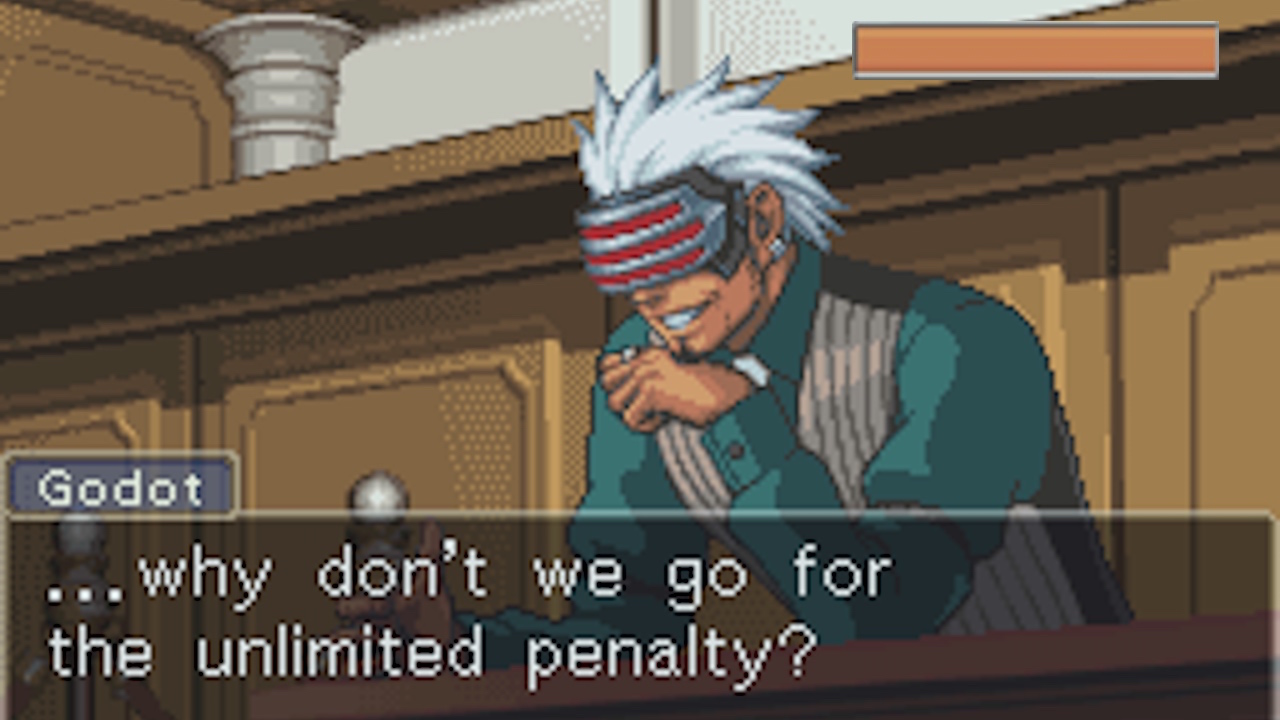
Lawyers, as a rule, tend not to lack for self-confidence, though honesty is another matter entirely. (*He says, before being sued for 18 quintillion dollars*). It's interesting to note then, that the Ace Attorney franchise isn't so much concerned with the protagonist's self-assurance as it is with the confidence he can inspire in others - namely both judge and jury. Likewise, prosecutor par excellence Miles Edgeworth requires the absolute truth in order to claim victory. Talk about Opposite Land... Still, these concepts remain vital to the series' success, forcing players to really do their homework in order to succeed, as opposed to when playing more, shall we say, 'accusation-happy investigators'. Alright we're talking about you Cole Phelps. You'd never have worked it out on your own.
Also known as the 'penalty meter', these gauges reflect how far the player is from earning him or herself an instant failure. Rather than 'dying' outright, the presiding judge will instead order the player to simply shut up, thereby preventing any additional evidence from being exposed. Lack of facts means a lost case, no matter how well things were progressing up to that point. Penalties can be incurred in a number of ways, though most relate to proper lawyering faux-pas - i.e. presenting irrelevant information, causing numerous interruptions or generally wasting everyone's time.
Anger Meter (Dr. Jekyll & Mr. Hyde)
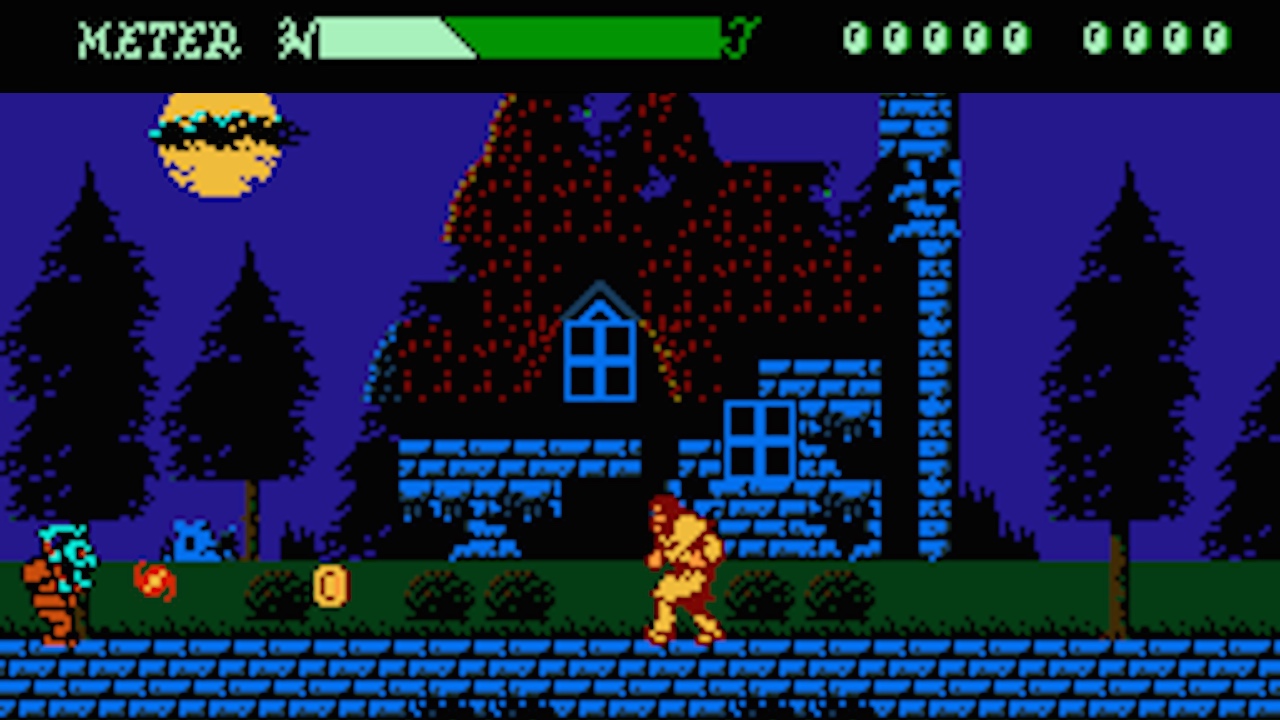
How ironic that a game as maddeningly frustrating as Dr. Jekyll & Mr. Hyde's NES 'adaptation' should include its very own 'anger meter'. Perhaps they ought to have stuck one on the front cover, next to a shot of that man's head exploding in Scanners. 'Anger level: Dome Blaster'. As it stands, the game's actual anger meter measures how many hits Dr. J - no, the other one - can endure before morphing into his alter ego. Once changed, Hyde can only revert to his human form by defeating scores of enemies, lessening his anger with every successful kill.
The aim here is to help either persona to reach the church. Jekyll is on his way to get married, while Hyde appears to be more interested in battling floating demon heads. J sidles to the right, overcoming the usual assortment of church-goers' woes - namely attack dogs and laxative-gulping birds, while H shuffles his way to the left, fighting off all manner of hell spawn in the process. While the game does boast an additional health bar, most folks aren't really likely to notice, so busy will they be slamming their skulls into the TV in vexation.
Crowd Meter (Rock Band)
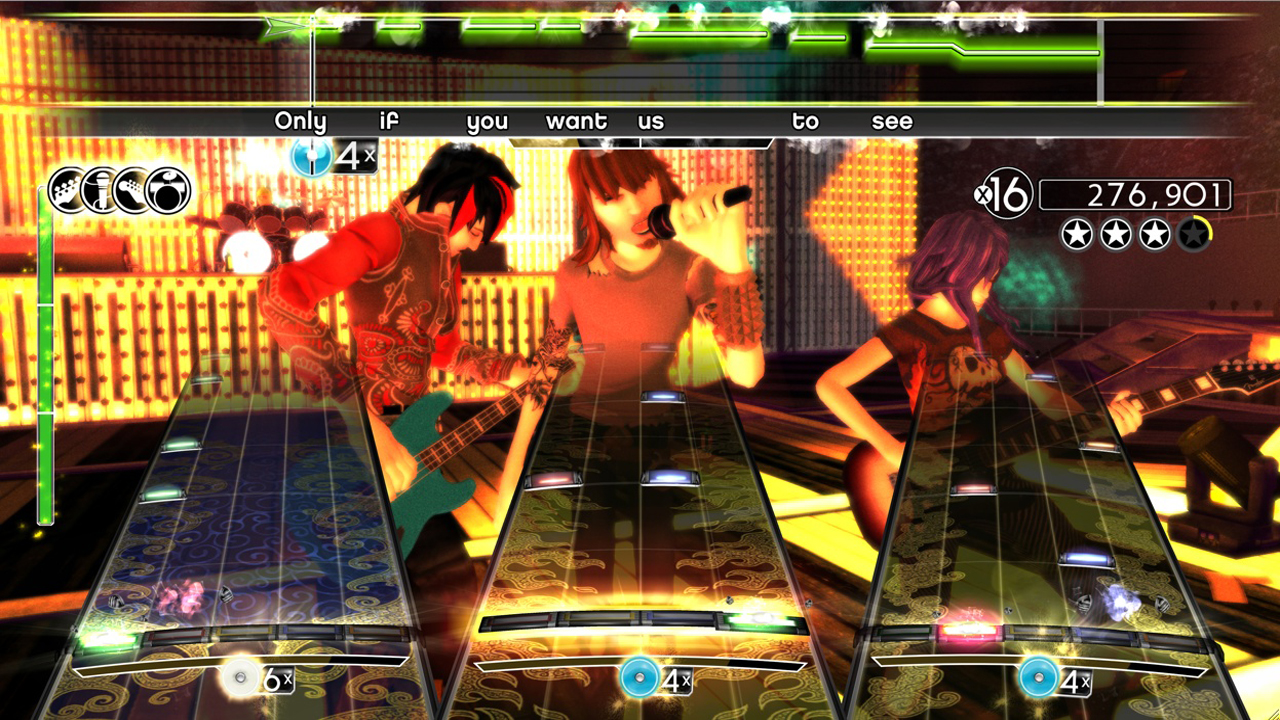
A solitary 'health bar' shared between as many as four cack-handed friends? What could possibly go wrong? Rock Band's crowd meter is all about giving the people exactly what they want - good music, played in time, with a minimum of drug-induced tirades, prissy refusals to play or other such rockstar-related nonsense. Failure to keep the tunes coming results in your immediate death.
No wait you're just made to start all over again, like the world's crappiest cover band freaking out at a high school talent show. Potential hits to the meter include everything from missing big notes to the police happening upon that one dead groupie at the back of your tour bus. No, not really. You'll have to wait for Rock Band 4 for that...
Morality Meter (The Adventures of Robin Hood)

Ah the morality meter. What better way to adjudge ethical integrity than to plot the entirety of human experience along a single, simplistic gradient? "Have you been a good boy this month Mr. Manson? Well then I guess we can let those nine most recent murders slide. After all, you are a level 87 paragon". I hope that no one's actually taking their cues from these sorts of things, paying off the occasional genocide by helping a couple of ducks to cross the road.
So, what exactly is a morality meter doing on this list anyway? Surely those things are so far removed from the typical health bar as to warrant their own article? Well yes, for the most part. While it's true that ethical flubs seldom result in an outright failure, some games do choose to punish players long before the alternate endings roll in. Take the Adventures of Robin Hood for example, an MS-DOS game that for some strange reason allows players to turn a man a legendarily benevolent man - so altruistic he's practically an adjective for charity - into a right old greedy bastard. Accordingly, the townspeople could also play against type, by stringing up this bizarro Robin of Loxley by his neck. You didn't see that in the Kevin Costner film.
'Stress Meter' (Fahrenheit/Indigo Prophecy)
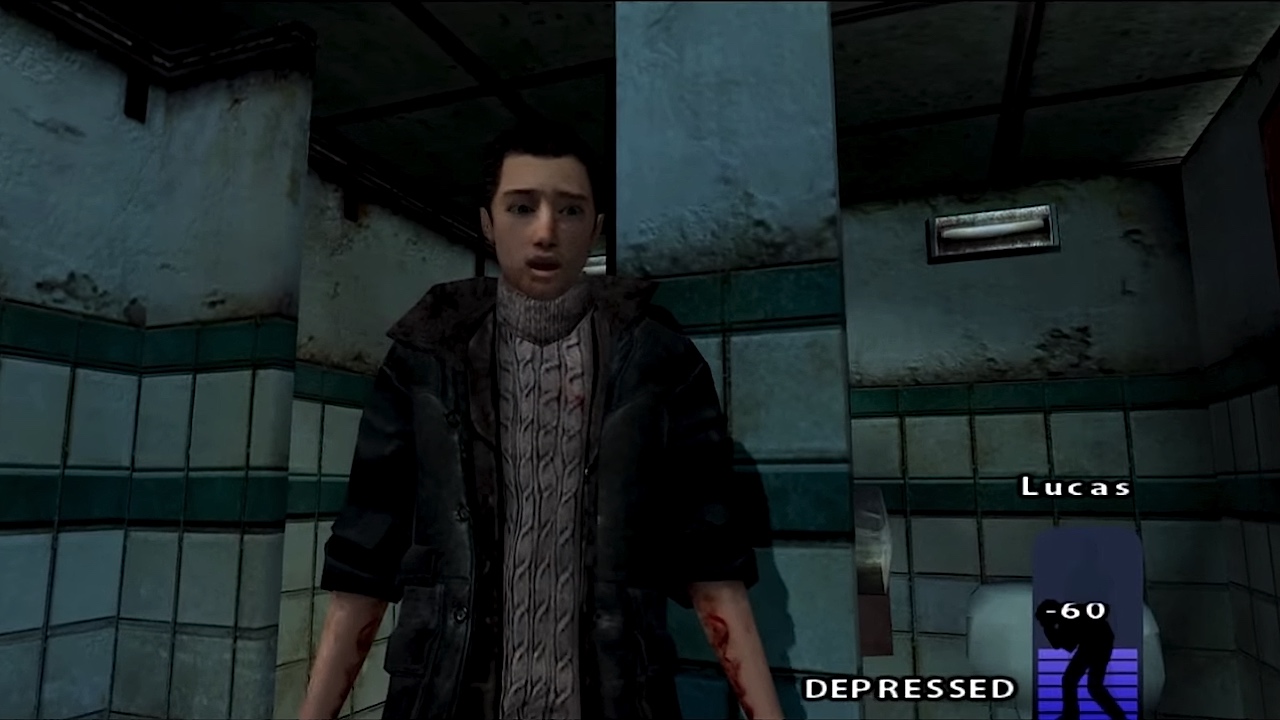
Despite being named as a 'Sanity Meter', Fahrenheit's unique take on the concept is really more akin to a 'stress gauge'. If the likes of Amnesia and Eternal Darkness can be considered 'straight horror', then this cult hit is more of a twisting and atmospheric thriller. Everything from guilt, to grief, to outright physical revulsion can cause the game's main players to lose stability, edging them ever closer to complete mental collapse. In short, where sanity meters are perfect for measuring shocks, scares and unbearable tension, a stress gauge instead assesses the slow decline of an everyday office worker. That is to say: everything up to and including their big, monitor throwing rage quit.
Interestingly, or should I say rather morbidly, the game doesn't shy away from displaying the results of these overloaded stress meters. Depending on the protagonist being played, as well as his or her current situation these outcomes can include suicide, arrest, job loss and even committal to a mental asylum. Ouch.



